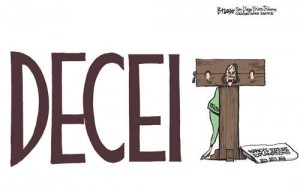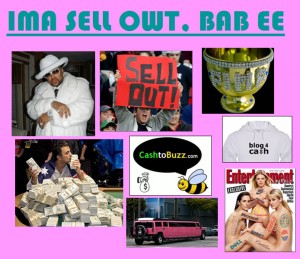Take it from the author of “Beyond Viral,” dear reader. Viral video is like fire. It can create a toasty fire or get people burned. Today we learned out the Times Square billboard hack video was part of the campaign for the film, Limitless.
The deception was the brainchild of the viral-video maker “ThinkModo,” according to the New York Times, who “outed” the stunt.
“We’re pushing the engagement of an idea which leads you then to the product,” ThinkModo’s James Perceley told the New York Times in his defense. “It just is a whole new mind-set where you don’t have to wrap everything up in a bow and if you don’t, people are going to be a lot more interested in you and what you’re selling and what your message is.”
We think otherwise. Calling it “engagement pushing” is simply misdirection. It’s unethical marketing that is deceptively disguised. The lack of transparency (of the film’s financial support of what appears to be a user-generated video) is reminiscent of the 1950 subliminal advertising, which sends “buying signals” to our subconscious without our executive-brain’s consent. This despicable tactic shows the seedy, desperate nature of marketers who don’t mind duping journalists, technical blogs, audiences and potential ticket buyers… all in the name of “engaging” audiences in immoral promotion of a film.
Techcrunch’s Michael Arrington is calling the campaign “a sad, desperate state of sensational adverting,” and apologized Sunday to TechCrunch readers. Arrington reports:
“We believed the video’s creators had indeed hacked Times Square’s billboards, and that it was a newsworthy event that would interest technical enthusiasts. Had we known that we were being duped into free advertising by ‘covert agents’ of the film’s promoters, we would not have run the article so prominently. TechCrunch urges its readers to boycot Limitless, and promises to apply more rigor in our future journalism”
The campaign for the “Limitless” film, staring Robert DeNiro and Bradley Cooper, includes other a misleading and deceptive practices including a Web commercial for NZT, a drug featured in the film. Apparently the term “Limitless” refers to the film’s marketing practices, and the complete “lack of limits” in scruples of desperate marketers.
While I do many sponsored videos, I always disclaim the brand or company that supports my videos. Can’t we expect the same from others?
Still reading?… Is this blog post and its facts and opinions actually real? No. But suppose after feeling outraged by this post (either in support or defiance of my point) you later found out that this faux WillVideoForFood post was simply a paid promotion for a new book called “Business Ethics: Decision Making for Personal Integrity & Social Responsibility” by Laura Hartman and Joseph DeJardins. In this hypothetical experiment, I’m asking you to pretend you later learned that my faux written tirade was, in fact, a ruse that omitted transparency about my financial compensation from McGraw Hill. Suspend belief momentarily, and imagine I didn’t “come clean,” but was “outed” by another blogger who reported that my post was simply a compensated, masqueraded promo for the book. Would you trust my reporting if you learned this post was a promotional gimmick? (It’s not).
Would you feel duped, or would you say, “hey that Nalts is pushing the engagement idea to cool new limits.” I’m just curious.


